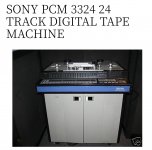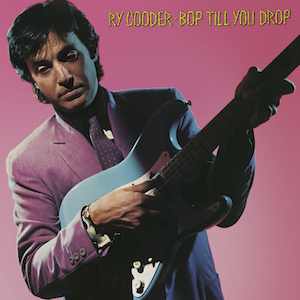AnthonyI
Well-Known Member
.......I have no doubt played side by side most would say the One-Step stands out quite a bit over an OG.Well...?? How is it??
.......I have no doubt played side by side most would say the One-Step stands out quite a bit over an OG.Well...?? How is it??
In many cases, yes, agree. But the problem I have isn't cost, it is that I rarely find a true mint original (except Japanese pressings), particularly US pressings, where originals came in shitty paper sleeves that have deteriorated over time leaving damage that is not fixable. Combined with far too many sellers stating NM where they haven't even bothered to wipe the vinyl clean, my balancing act is that a Speakers Corner mastered by KG is more than satisfactory.This is something that I'm always wary about. When it comes to jazz specifically there are very few reissues that I have heard that significantly tops the initial pressings (those that I can compare with anyway). When you factor in costs I understand that a lot of reissues are cheaper, but in some cases thats not true. Its certainly a balancing act.
According to discogs, seems like there are 180g versions as well bu still pressed at QRP. I'm guessing that's what these are.I paced on order, just because I think it's the first UK deal I've seen in time to place an order.
It's bound to be the EU MOV version, but the listing looks like it's QRP has the same ASIN & weight (when you convert to grammes) as the US listing. But I have had difficulty with Amazon listings in the past. If it's not 200g QRP goodness, I'm blaming you

 www.discogs.com
www.discogs.com
Any opinions on the MoFi 2016 reissue of Pretenders s/t LP? Better than an OG?

Pretenders - Pretenders
View credits, reviews, tracks and shop for the 2016 Vinyl release of "Pretenders" on Discogs.www.discogs.com
Any opinions on the MoFi 2016 reissue of Pretenders s/t LP? Better than an OG?

Pretenders - Pretenders
View credits, reviews, tracks and shop for the 2016 Vinyl release of "Pretenders" on Discogs.www.discogs.com
Much better then the OG, fantastic pressing.Any opinions on the MoFi 2016 reissue of Pretenders s/t LP? Better than an OG?

Pretenders - Pretenders
View credits, reviews, tracks and shop for the 2016 Vinyl release of "Pretenders" on Discogs.www.discogs.com
 www.superdeluxeedition.com
www.superdeluxeedition.com
It was recorded on digital tape. So it's both digital and it has an original master tape.
Not to mention, you're not gunna beat the Mofi 2 LP 45 BIA so like... Unless these cost significantly less why bother...So this is a weird & probably a little boring. But I saw this article about 2 new Dire Straits/Knofler Abbey Road Masters, where, Mike Showell apparently states that he has tracked down the original master tapes. My question is, was there an original master tape for Brothers in Arms?
Original masters used for Dire Straits and Knopfler half-speed vinyl – SuperDeluxeEdition
www.superdeluxeedition.com
It's over half the price in the ukNot to mention, you're not gunna beat the Mofi 2 LP 45 BIA so like... Unless these cost significantly less why bother...
I guess it depends if this is one of the good Abbey Road remasters, or one of the bad ones. Seems about 50/50 at this point...It's over half the price in the uk
It's over half the price in the uk
I always thought BIA was the first all digital. Wonder if it was a computer tape?


I always thought BIA was the first all digital. Wonder if it was a computer tape?


It was “one” of the first all digital rock/pop cds that was widely available. CDs were so new that a lot of the first all digital recordings at the time were classical releases. The digital hype was overwhelming but the popular music selection was pretty limited for a couple years.
There is a lot of info out there on how BIA was recorded. Today we would maybe say it used the new medium to best advantage and overcame early digital limitations. It is amazing how great BIA sounds both on CD and vinyl.
Why use an old analog reel-to-reel (like all those vintage Blue Notes we love) when you could go “perfect sound forever” digital...
View attachment 87009
All of this is true but its also true that early PCM recording was so raw and unresolved that they were shocked at how harsh it sounded and subsequently passed large amounts of the original recordings through analogue tube compression filters before and during the mix stage. It took until the late 80s/early 90s before the technology really began to mature.